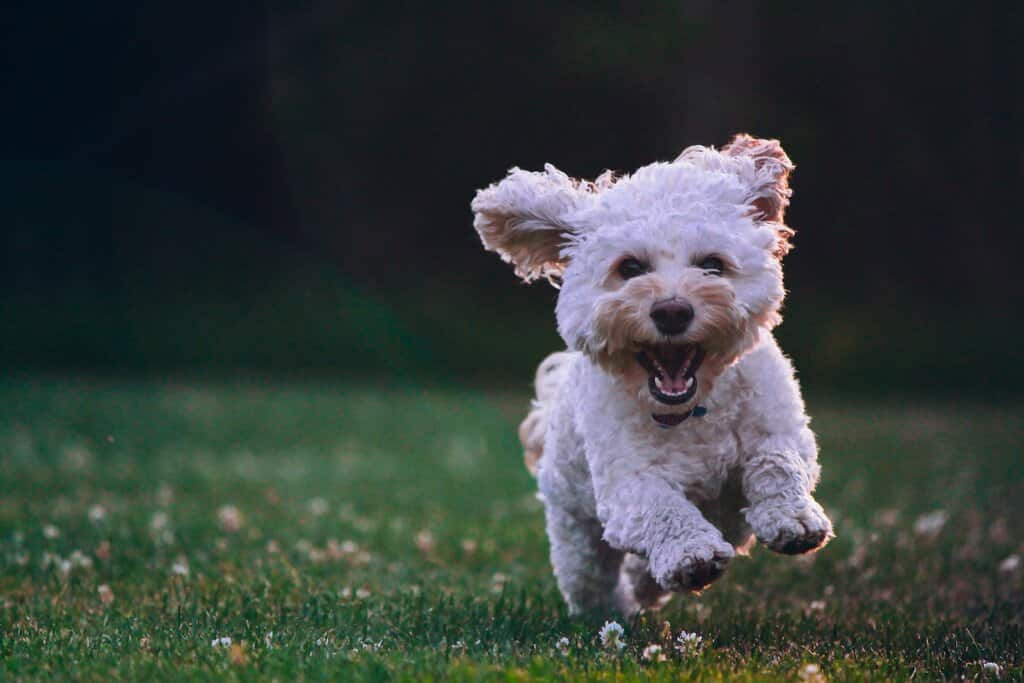
Potty training puppies is an exciting time for any pet parent. They want their puppies to learn how to use the bathroom properly. However, house training a puppy can be a challenge.
How do you teach your puppy to use the bathroom correctly?
Puppy Potty Training Tips
Here are some tips that can help you train your puppy faster:
1) Keep an open mind. Try to understand why your puppy has been misbehaving lately. Maybe there have been changes in his environment. Or perhaps he needs more time to adjust to life as a family pet. Whatever the reason, take note of any change in your puppy’s temperament. Don’t ignore these signs. Instead, address them promptly.
2) Start early. The earlier you start potty-training your puppy, the easier it will be to teach them good habits. But even though you want to begin teaching your puppy proper toilet manners as soon as possible, don’t rush yourself. Take your time. Your puppy needs plenty of practice before it becomes fully trained.
3) Use positive reinforcement. When you reward your puppy for good behavior, he’ll feel encouraged to repeat the same action. On the other hand, punishment only teaches bad habits. Therefore, use positive reinforcement instead. For example, say “Good job!” every time your puppy uses the bathroom correctly. Occasional Accidents and Potty Accident do happens, just be patient with potty training process.
4) Set realistic expectations. Expecting your puppy to master all basic toilet skills within one day is unrealistic. He still needs lots of practice. As long as you’re willing to work with him patiently, however, your efforts will pay off sooner than expected.
5) Consistency counts. Once your puppy starts peeing and pooping correctly, stick to regular times each day. If you vary the times you offer treats or play sessions; your puppy will quickly lose interest in using the restroom.
Start early in Potty Training Puppies.
Puppies should start learning about using the toilet when they’re around six weeks old. This will give them plenty of practice before they reach full maturity and begin having accidents at night or during playtime. You may have heard it said that “puppies don’t need much sleep,” but this isn’t true!
A young puppy needs lots of restful sleep, so they have enough energy to grow up healthy. If you keep him awake all day long with too little exercise, then his body won’t get the chance to develop the muscles needed to control bladder function. So make sure you provide adequate amounts of restful sleep each day.
If you wait until your puppy reaches 8-10 months old, there’s no guarantee that she’ll remember what you taught her earlier on. She could forget everything if she doesn’t see any results right away. It takes several days for new memories to form in a dog’s brain. That means it would take longer than usual to train her again. And by that point, chances are she’ll already have had one accident.
It’s best not to wait until your puppy is older because:
1) He’ll probably still be growing and developing. His bones aren’t fully formed yet. The size of his skull hasn’t increased as much as other parts of his body. 2) Your puppy may become stressed out from being separated from mommy and daddy. When dogs feel anxious, they tend to urinate more often.
2) Most importantly, he’ll likely be tired after playing all day long. He’ll also be hungry since he didn’t eat anything while playing. These two factors combined will cause him to go into heat sooner than expected. Once he goes into heat, he’ll only focus on mating instead of potty training.
Don’t worry, though. There are ways to avoid these problems. For example, you can start teaching your puppy even before she starts going outside.
Teaching Puppies To Use the Bathroom Correctly
There are many different methods used to teach puppies to use the restroom. Some puppy parent prefer to reward good behavior while others like to punish bad behavior. Whichever way you choose, stick to it consistently. Don’t switch back and forth between positive reinforcement and negative punishment. Both approaches work well, but they require patience and consistency.
Be consistent during Puppy Potty Training.
The most important thing to consider is whether you want to use food rewards or toys. Food rewards are usually preferred over toys because they’re easier to handle. But sometimes, you may find yourself struggling to come up with treats every time your puppy does something wrong. In such cases, you may decide to try toys first. Then once your puppy learns how to respond to those toys, you can gradually introduce food rewards later on.
You can either buy special training collars made especially for puppies, or you can put a leash onto their collar. Make sure both ends of the leash fit snugly under the neckline of your pup’s harness. Tie the leash securely to prevent it from slipping off.
When you pull the leash taut, your puppy will immediately stop whatever activity he was doing. Letting loose of the leash allows him to continue whatever he was doing without getting punished.
Make sure you always hold the leash firmly. Never let your puppy run free. Otherwise, he’ll end up running straight towards the nearest place where he knows he can relieve himself.
Reward Good Behavior & Punish Bad Behavior
Once you’ve decided which approach works better for you, here are some things to think about:
• Be patient. Dogs naturally love attention. They enjoy praise and affection. Giving your puppy extra attention whenever he behaves well helps reinforce the idea that he deserves to be praised. However, don’t give in too quickly. You need to remain firm when punishing your dog if he misbehaves. This way, he won’t get discouraged by your reaction. Instead, he’ll learn what’s acceptable and unacceptable.
• Praise your puppy frequently. Whenever possible, make eye contact with your puppy, so he feels loved and appreciated. If he doesn’t look at you right away, gently nudge his head toward yours. Also, speak softly and calmly. Avoid yelling and scolding. It might scare your puppy and discourage him from learning new behaviors.
• Reward your puppy whenever he obeys commands. Even small actions deserve recognition. So do big ones. A simple “good boy!” or “well done!” should suffice. Remember not to lavish excessive praises on your puppy. That would encourage him to keep acting up.
• Always correct your puppy whenever he misbehaves. No matter how young your puppy is, never allow him to act aggressively towards anyone else. Doing this could result in serious injuries. And remember, aggression isn’t limited to physical attacks alone. Sometimes, aggressive behavior manifests itself through inappropriate barking, whining, growling, etc.
Positive Reinforcement
When you first introduce your puppy to the litter box, place a few drops of food inside. Then put her down next to the box. After 5 minutes, remove the food and praise her for doing such a great job. Repeat this process every couple of hours throughout the day.
Having a solid understanding, lots of praise and consistent schedule will result to a successful potty training for our beloved puppies.
